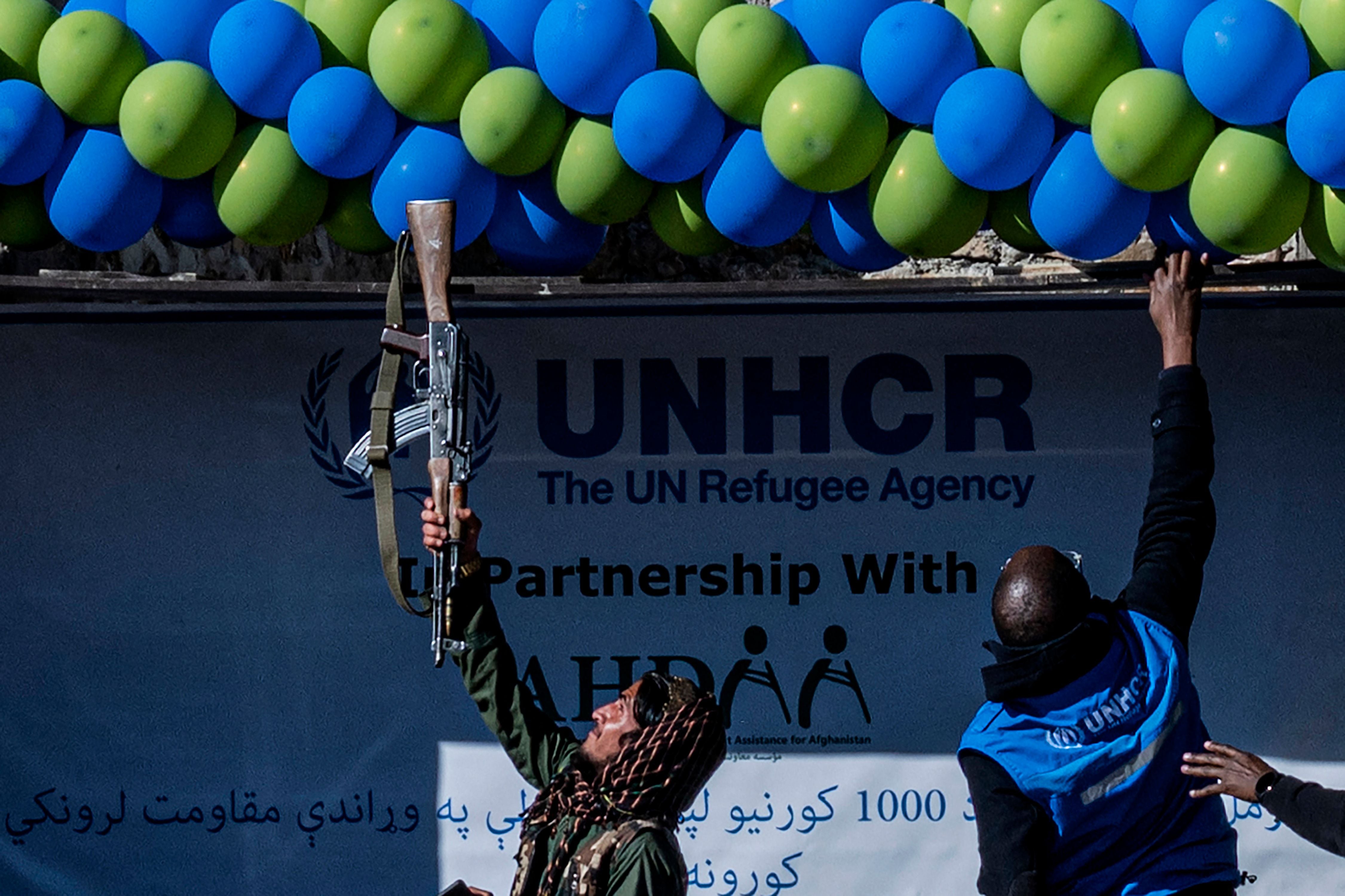UN refuses Taliban’s suggestion to replace women staff with men in Afghanistan: ‘We are steadfast’
‘Female national staff will not be replaced by male national staff as some de facto authorities have suggested’

The United Nations will neither replace its female staff in Afghanistan with men nor endanger their safety, a top official for the global agency has pledged.
It comes after the Taliban banned the UN and other agencies in Afghanistan from employing local women.
‘‘We will not put our national female staff in danger, and therefore we are asking them not to report to the office,’’ said Roza Otunbayeva, the UN’s General Special Representative for Afghanistan, in a briefing to the UN Security Council (UNSC) on Wednesday.
‘‘At the same time, we have asked all our male national staff performing non-essential tasks to stay home to respect the principle of non-discrimination.’’
‘‘Finally, we are steadfast: female national staff will not be replaced by male national staff as some de facto authorities have suggested,’’ she said.
In the first such briefing that aimed to hold the Taliban accountable at the UN table, the envoy warned the hardline Islamist regime that its bid to gain international recognition will remain ‘‘nearly impossible’’ until it lifts severe restrictions imposed on girls and women who have been barred from access to education and employment.
Ms Otunbayeva told the UNSC that while the Taliban is pushing its agenda to seek recognition from the UN and its 192 member nations, ‘‘at the same time they act against the key values expressed in the United Nations Charter’’.
The Taliban has ‘‘specifically targeted the United Nations’’ in its ban that stopped women from working with international organisations, the envoy said.
Since taking control of Afghanistan after the fall of Kabul in August 2021, the Taliban regime has carried out public executions and floggings to punish homosexuality and adultery as well as illegally detaining and imprisoning hundreds of people.
The regime also banned girls from schools above the sixth grade and shut colleges and universities for women.
In its latest edict issued in April this year, the Taliban stopped women from working with international NGOs and UN agencies – hampering the delivery of food and humanitarian aid for millions.
In a swift U-turn from its initial promise of moderate rule, the Taliban has revoked a wide range of human rights established under Ashraf Ghani’s Western-backed regime.
“The ban against Afghan women working for the UN adds to earlier restrictions placed on Afghan women and girls by the de facto authorities: against women working for NGOs, against women working for other diplomatic entities; preventing girls attending non-religious secondary and tertiary education institutions; against girls and women visiting public parks, baths, and gyms,” Ms Otunbayeva told the UNSC.
“These and other edicts limit the physical movement of women and girls and their participation in economic, social and public life.”
Reeling from a major financial crisis, Afghanistan has been negatively impacted by these bans and they have obscured some of the de facto regime’s achievements, the envoy said, referring to a recent and significant decrease in opium cultivation.
“The Afghan economy remains stable, albeit at a low equilibrium,” she said. The World Bank reports that inflation is declining and the exchange rate remains steady but there is “severe household poverty”.
“According to the World Bank, 58 per cent of households struggle to satisfy basic needs. United Nations humanitarian efforts continue to address the needs of the nearly 20 million people who need some form of assistance. Afghanistan, I would remind you, remains the world’s largest humanitarian crisis,” Ms Otunbayeva said.
In a frank political assessment, she called the Taliban regime “insular and autocratic” with “an unaccountable central authority” and an all-male government almost entirely from its Pashtun and rural base.
Afghanistan has been plagued by multi-faceted crises.
A plague of locusts damaged crops in northern provinces, threatening 1.2 million tons of wheat, Save The Children said on Monday.
Meanwhile, eight million Afghans were cut off from food aid in the past two months due to funding shortfalls, and more than 15 million people – a third of Afghanistan’s population – are projected to face crisis levels of hunger over the next five months.
Join our commenting forum
Join thought-provoking conversations, follow other Independent readers and see their replies
Comments



Bookmark popover
Removed from bookmarks